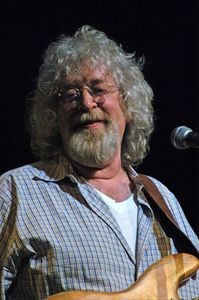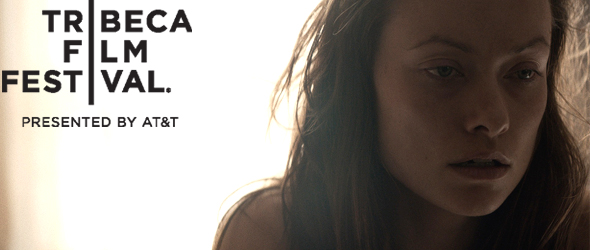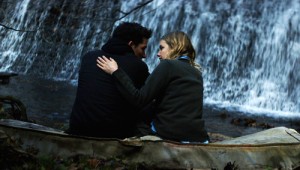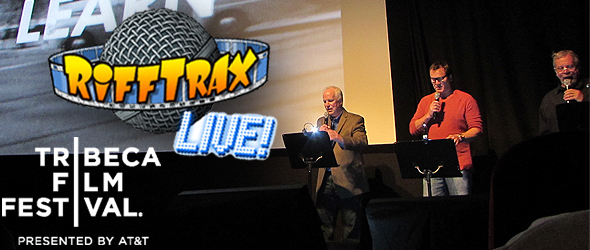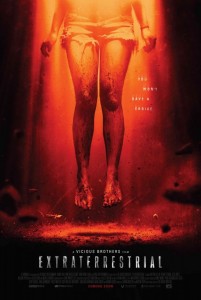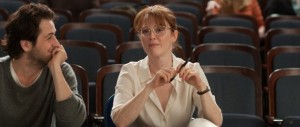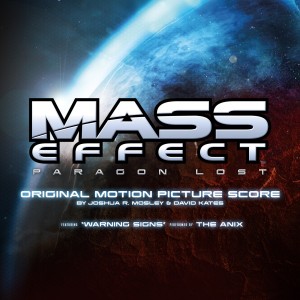The Limit are a newly formed heavy rock band that is set to release their debut album “Caveman Logic” on April 9th. Consisting of Bobby Liebling (Pentagram), Jimmy Recca (ex-The Stooges), Sonny Vincent (Testors), Hugo Conim (Dawnrider) and Joao Pedro (Dawnrider) the bands five members combine their diverse talents to craft a unique sound which is equal parts punk and doom. Media Mikes had the chance recently to speak with Bobby and Sonny about the group’s formation and their new album.
Adam Lawton: How did the group initially come together?
Sonny Vincent: We didn’t know each other really at all. Bobby and I have a mutual friend who was my tour bus driver on a couple of tours. He played Bobby my music and after that he gave me a call. We started talking over the phone and got to know each other pretty well. After awhile we started to get serious and thought we should make an album
Bobby Liebling: After talking for awhile we decided to give Jimmy Recca a call as he was a guy, we both knew. Sonny had worked with Hugo Conim previous and he had just gotten a new drummer (Joao Pedro) that he was going to bring along as well to start recording in Maryland. That ultimately didn’t work out and we ended up traveling to Portugal to make the album.
SV: None of us new each other well. Aside from meeting briefly over the years and talking on the phone that was really it. Now Bobby, Jimmy and I were flying to Portugal to meet these other two guys. It was sort of “Lord of the Flies” at first because Bobby and I are used to running the show in our other projects. Add in Jimmy, Hugo and Joao and everything but the music at first was this weird nightmare. We had a killer engineer and the music turned out better than we had expected.
AL: What was the writing process like?
SV: Bobby and I had written a bunch of songs together. I would have the riffs and song structures and then Bobby would come in with the melody. We had some songs together prior going to Portugal but there were some lyrics that still had to be finished.
BL: We still had to do the arrangements once we got there with the whole band. There was some switching around and extending certain parts we did in order to make them all fit.
SV: I had sent the songs to Jimmy prior to leaving so he could get all his parts down. He actually got a little mad as he had learned the songs the way they were originally sent to him then we ended up changing a bunch of parts, so he had to go back and learn them again but with all the changes.
BL: He was pretty pissed. I do remember that.
AL: Was this how you have worked in your previous projects?
SV: We both approached this in different ways. Sometimes you start with the lyrics and then add the music or its the other way around. I know Bobby has done things differently as well. In fact, he told me about one album where he virtually played everything but drums.
BL: When we go in to do a Pentagram album, I am used to the whole band being there in the same place. We then take a good three to six months to play and plan everything out that way when you get to the studio you can bang out each song pretty quickly. We sort of stumbled our way through things with this project.
SV: I know that was one of the things that was pretty difficult for Bobby being in the past he has always worked in a very methodical way. I don’t do that.
BL: Sonny has worked with a lot of different people where I have worked in a more stabilized environment. Yes, Pentagram has switched members, but we have been together for fifty years so of course you’re going to have some member changes. Not many guys are going to dedicate half a century to a project. Sonny has a much bigger network of people that he has worked with. He has worked more as a solo artist per say where he reaches out to well know players for an album and after that he moves on.
SV: Early on I wanted to have a group with a solid lineup, but something was always happening where members couldn’t stay. I knew I wasn’t going to break up with myself, so I just decided to skip the whole band thing.
BL: I have always been opposite where I am the guy continually waving the Pentagram flag and bringing in new members to keep the band moving.
SV: With us coming from such different styles there was a good amount of stress at the start for sure. We got passed it and we found that we generally did agree on how things should go.
BL: We knew this was for the cause of making each song our child. You then groom that child to have certain traits which each person feels is best for them.
AL: How did you go about choosing the first three singles that have been released?
SV: The first two released were “Black Seas” and “Kitty Gone”. Those were both quite popular and the label asked us to do one for “Death of My Soul”. They felt this song really showed the scope of what we do. For the video I knew a guy in Canada who is a professional film maker. I was originally going to give him some guidance as to what we were looking for but decided not to as I wanted to let him come up with what he thought fit the song. He shot it and sent it back and then I took it to the label and they really liked it, so we were all happy.
BL: We had a lot of artistic freedom when it came to picking songs. However, our label has a staff of nine people who have to arbitrate over decisions and of course not everyone is going to think the same thing.
SV: The singles were a bit difficult especially the first one. Hugo and I worked for about a month on that when I looked at it there was something missing. It just didn’t have the emotion to tie everything together. Even though we had made it ourselves I just wasn’t happy. We ended up sending that to the record company and they had some who worked there that took parts of what we did and mixed it with some new things and that helped a lot. The final version made you feel things as you were watching and that’s what I was going for. With “Kitty Gone” we used the same guy at the label, and we shared ideas and that one turned out much better.
BL: That one is fantastic as far as I am concerned. You can actually watch it and lyrically follow it as if you are watching a film where people are talking to one another. You can really follow it from scene to scene. It has a screenplay type feel.
AL: Prior to COVID-19 were there plans to tour and, if so, are you still planning to do so when possible?
SV: We didn’t put any barriers up against doing things at first. We went in to do the album and while listening to the rough mixes we thought it could be cool to play these for people. When we heard the final mixes, we got really excited. There are offers for the band to perform and we are interested but things are still very uncertain due to COVID-19. We just have to wait and see what is going to happen.
AL: Do you see The Limit as a one-time thing or are you interested in working more together as a group?
SV: We want to do another album. We all know each other more now and at the start of this record there were things that moved in a negative way. We had a thirty-four-hour travel time to Portugal, during that trip Jimmy had lost his wallet at one point and was back tracking his steps trying to find it. He asked Bobby and I to watch his bag. We got talking and accidentally walked away from the bag. We saw Jimmy at a coffee shop, and he asked where his bag was. He of course got mad and thought that we didn’t care about him enough to even watch his bag. That set things off in the wrong direction.
BL: That layover in the London airport was fourteen hours by itself. We were already ten to fifteen hours into the thing prior to this layover and then we had another flight to get to Portugal. It was a pretty rough start to say the least.
For more info on The Limit and their debut album “Caveman Logic” click here.





